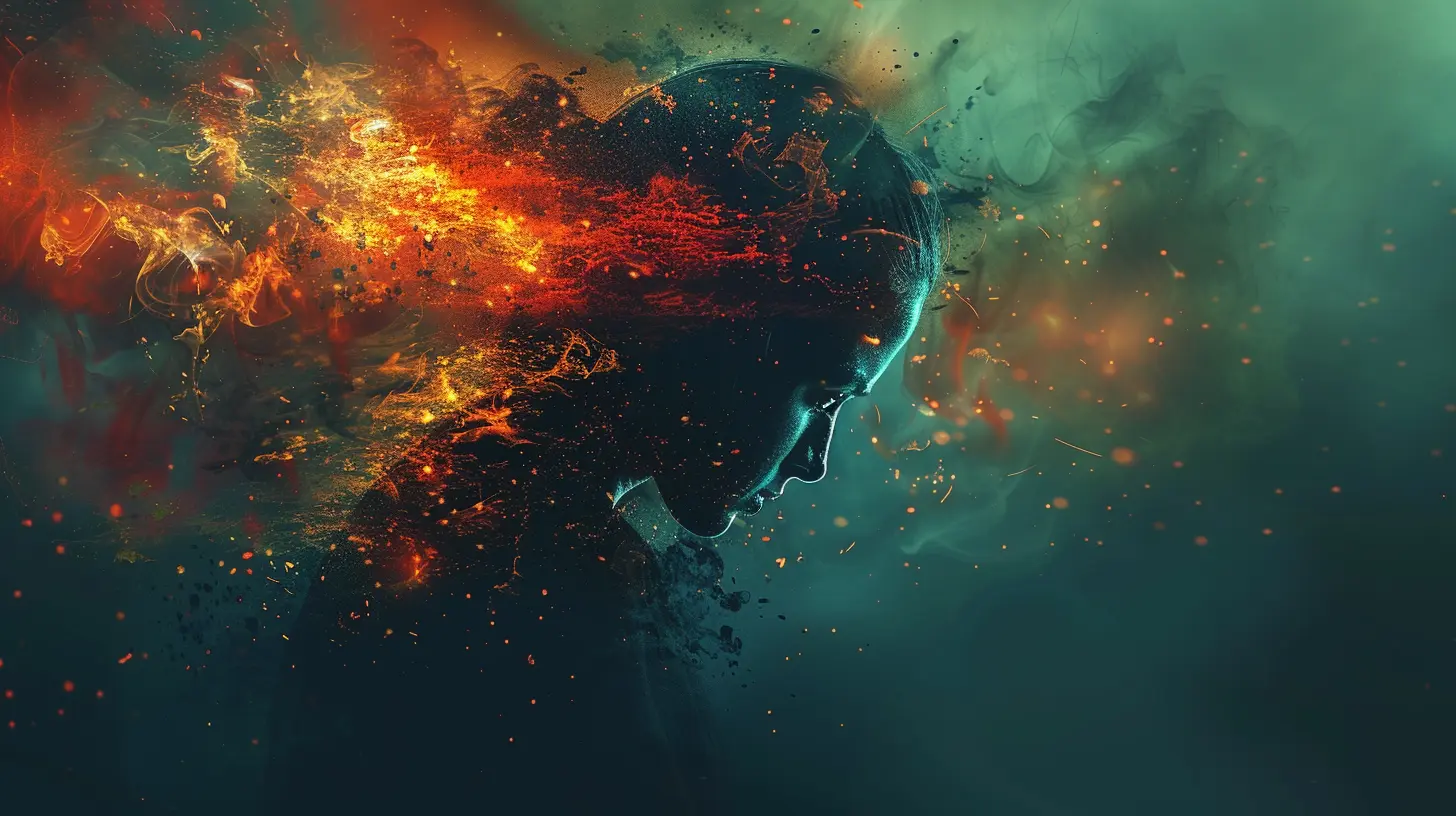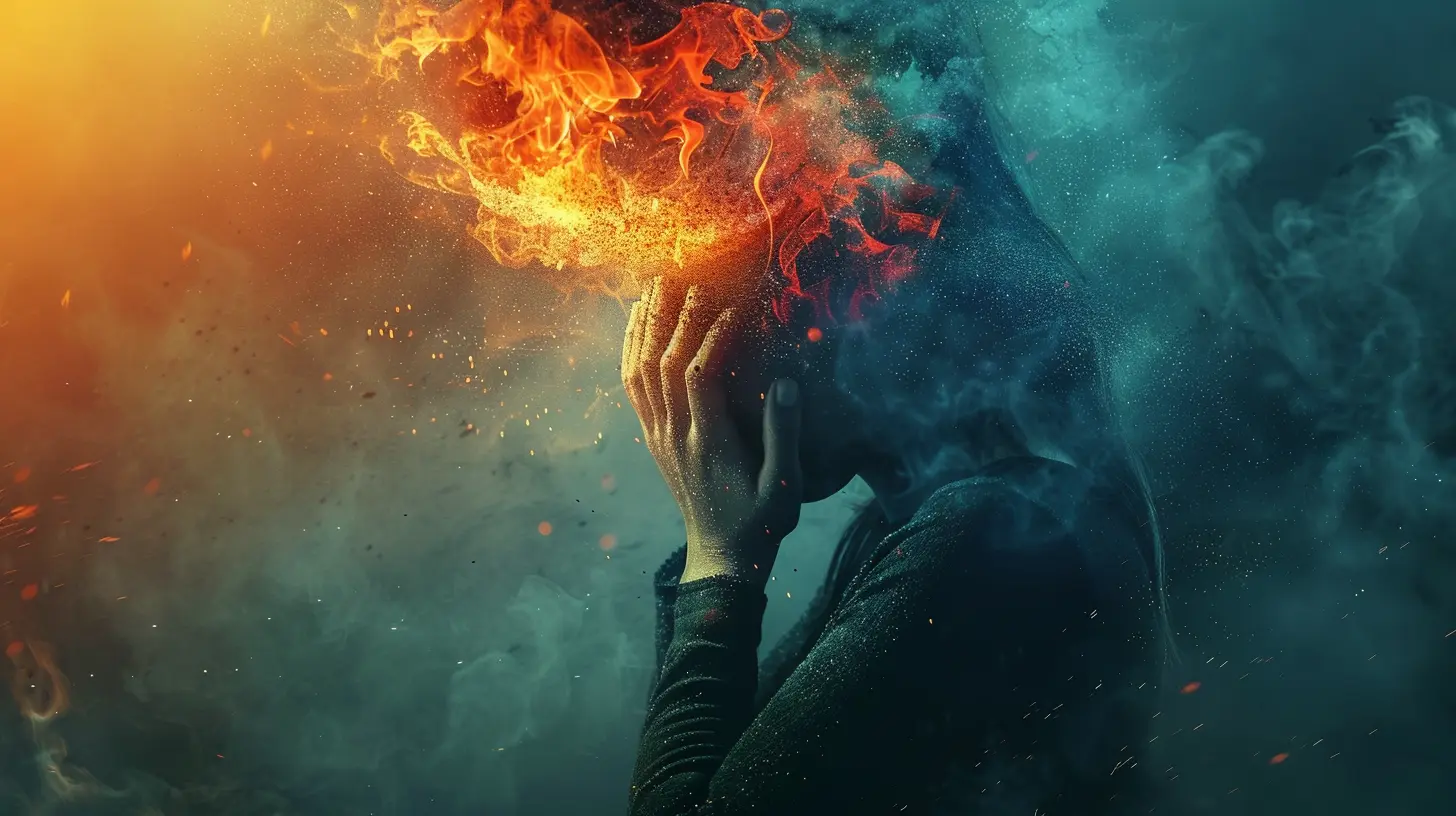Emotional Triggers and Their Impact on Behavioral Responses
24 November 2024
Ever had a situation where something seemingly small sets you off, and you react in ways that even surprise yourself? Maybe you snap at someone for a harmless comment, or you feel inexplicably sad after hearing a specific song. These are instances of emotional triggers at play. Emotional triggers are powerful, often subconscious catalysts that can influence our behavior in ways we don’t always understand.
But what exactly are emotional triggers? How do they shape our reactions? And most importantly, what can we do to manage them? Let’s dive into the fascinating world of emotional triggers and their impact on behavioral responses.

What Are Emotional Triggers?
In simple terms, emotional triggers are stimuli—whether internal or external—that provoke an emotional reaction. These triggers are often linked to past experiences or unresolved emotions. When we encounter a trigger, it can stir up a flood of feelings, from anger and anxiety to sadness or even joy.Imagine emotional triggers like buttons in your brain. When certain situations, words, or events press these buttons, you experience a surge of emotion that can be hard to control. And just like how pressing a button on a machine sets it into action, emotional triggers set us into action, too—sometimes in ways that are helpful, and other times, not so much.
Common Emotional Triggers
Emotional triggers vary from person to person because they’re deeply rooted in individual life experiences and personal history. However, some common emotional triggers include:1. Criticism: Even constructive feedback can feel like a personal attack for some.
2. Abandonment: Feeling left out or ignored can stir up deep fears of being alone.
3. Rejection: Whether in relationships or work, rejection can trigger feelings of inadequacy or failure.
4. Injustice: Seeing or experiencing unfairness can light a fire of anger or frustration.
5. Failure: Not meeting expectations, whether our own or others', can make us feel ashamed or worthless.
6. Control: Feeling powerless or out of control in a situation can cause anxiety or panic.
Why Do We Have Emotional Triggers?
Emotional triggers are like emotional baggage—stuff we’ve picked up throughout life, often without realizing it. They’re linked to past experiences, especially our early ones, and the emotions we felt back then. For instance, if you were often criticized as a child, receiving feedback as an adult might trigger feelings of inadequacy or fear even if the feedback is well-intentioned.These triggers are essentially defense mechanisms, leftover from times when we needed to protect ourselves emotionally. When we were young, emotional reactions like anger or sadness helped us navigate difficult situations. As adults, these reactions can become automatic, even when they’re no longer necessary or helpful.

How Emotional Triggers Influence Behavioral Responses
The relationship between emotional triggers and our behavioral responses can be pretty intense. When a trigger is activated, it can lead to powerful emotional responses—sometimes disproportionately so. The emotions we experience in response to triggers often drive our behavior, leading to actions or reactions that we may later regret.Let’s break down how this works.
The Chain Reaction: Trigger → Emotion → Behavior
First, a trigger sets off an immediate emotional response. This emotional response can range from mild annoyance to full-blown rage or despair, depending on the intensity of the trigger and the individual’s emotional sensitivity.Then, that emotional response produces a behavioral reaction. This could be anything from lashing out in anger, withdrawing from others, or even engaging in unhealthy coping mechanisms like overeating or substance use.
For example:
- Trigger: Your boss criticizes your work during a meeting.
- Emotion: You feel embarrassed and frustrated.
- Behavior: You snap at your colleague later, even though they didn’t do anything wrong.
In essence, emotional triggers can hijack our rational mind, leading to impulsive actions that don’t align with how we’d ideally want to act.
The Fight, Flight, or Freeze Response
When we’re triggered, our brain often switches into survival mode, activating the fight, flight, or freeze response. This is an ancient biological mechanism designed to keep us safe from danger. When confronted with a threat—real or perceived—our body releases stress hormones like adrenaline and cortisol to prepare us for action.- Fight: You might get confrontational or argumentative (think about that time you snapped at a friend during an argument).
- Flight: You might avoid the situation or shut down emotionally (ever walked out of a tense conversation to avoid conflict?).
- Freeze: You become paralyzed and unable to respond effectively (have you ever been so overwhelmed by a situation that you just didn’t know what to do?).
While this response is crucial when facing physical threats, it’s less helpful when dealing with emotional ones. Our modern-day “threats” are more likely to be social or emotional—like a critical comment from a boss—rather than a saber-toothed tiger. But our body doesn’t always know the difference, so it reacts with the same intensity.

The Long-Term Impact of Emotional Triggers on Behavior
Over time, unaddressed emotional triggers can have profound effects on our mental health, relationships, and overall well-being. If we’re constantly reacting to triggers without understanding or managing them, we may develop unhealthy patterns of behavior.Emotional Exhaustion and Burnout
Constantly being triggered can lead to emotional exhaustion. You might feel like you’re always on edge, never able to relax or feel at peace. This ongoing stress can contribute to burnout, making it difficult to function in daily life or maintain healthy relationships.Damaged Relationships
Our relationships can suffer when we react to triggers in unhealthy ways. Snapping at loved ones, withdrawing emotionally, or becoming overly defensive can create tension and distance. If left unchecked, these patterns can erode trust and intimacy over time.Reinforcing Negative Beliefs
Emotional triggers often reinforce negative beliefs we hold about ourselves. For instance, if you’re triggered by rejection, each time you experience it, you may reinforce the belief that you’re unworthy of love or success. Over time, this can diminish your self-esteem and make it harder to break free from destructive thought patterns.
Managing Emotional Triggers
The good news is that while emotional triggers can feel overwhelming, they’re not impossible to manage. With self-awareness and practice, you can learn to identify your triggers and respond to them in healthier ways.1. Identify Your Triggers
The first step in managing emotional triggers is to become aware of them. Pay attention to situations that provoke strong emotional responses in you. Ask yourself:- What was the situation?
- What emotion did I feel?
- Were there specific words or actions that triggered this emotion?
Once you identify your triggers, you can start to anticipate them and prepare yourself for how to respond.
2. Pause Before Reacting
When you feel yourself getting triggered, practice pausing before you react. This might sound simple, but it can be incredibly challenging in the moment. Taking a few deep breaths, counting to ten, or stepping away from the situation can provide enough space for your rational brain to catch up with your emotional brain.3. Challenge Your Thoughts
Emotional triggers are often tied to irrational beliefs or cognitive distortions. For example, if you’re triggered by criticism, you might automatically think, “I’m a failure.” But is that really true? Challenge these thoughts by asking yourself, “Is there evidence to support this belief? Or am I overreacting?”4. Develop Healthy Coping Mechanisms
Instead of reacting impulsively when triggered, develop healthier ways to cope with your emotions. This could include:- Journaling: Writing down your feelings can help you process them without acting on them.
- Mindfulness: Practicing mindfulness meditation can help you become more aware of your emotional responses and create space between the trigger and your reaction.
- Exercise: Physical activity is a great way to release pent-up emotions and reduce stress.
5. Seek Professional Help
If emotional triggers are significantly impacting your life, therapy can be an invaluable tool. A therapist can help you explore the root causes of your triggers and develop strategies to manage them more effectively.Conclusion
Emotional triggers are a natural part of life, but when left unchecked, they can lead to unwanted behavioral responses that affect our well-being and relationships. By understanding what triggers us, pausing before reacting, and developing healthier coping mechanisms, we can reclaim control over our emotional responses and lead more fulfilling, balanced lives.Remember, it’s not about eliminating triggers altogether—they’re a part of being human—but learning how to respond to them in ways that align with our values and goals.
all images in this post were generated using AI tools
Category:
Behavioral PsychologyAuthor:

Gloria McVicar
Discussion
rate this article
15 comments
Taryn Evans
Great insights! Understanding emotional triggers can truly transform our responses and relationships.
February 6, 2025 at 5:59 AM

Gloria McVicar
Thank you! I'm glad you found the insights valuable. Understanding emotional triggers is indeed key to fostering healthier relationships.
Aria Larsen
Understand triggers, empower growth, embrace change!
February 2, 2025 at 5:12 PM

Gloria McVicar
Thank you! Understanding triggers is indeed key to personal growth and navigating change effectively.
Flint Conrad
Insightful connections explored effectively.
January 27, 2025 at 4:04 PM

Gloria McVicar
Thank you for your kind words! I'm glad you found the connections insightful.
Asher Kane
Emotions are like sneaky ninjas, quietly triggering our reactions before we even realize it! Who knew feelings could be such stealthy puppeteers?
January 24, 2025 at 5:28 PM

Gloria McVicar
Absolutely! Emotions often operate beneath our awareness, guiding our reactions in surprising ways—truly stealthy puppeteers of our behavior!
Sylvia Lynch
This article insightfully highlights the connection between emotional triggers and behavior. Understanding these triggers can empower individuals to manage their responses better. I appreciate the practical tips provided for recognizing and addressing emotional reactions in daily life. Great read!
January 21, 2025 at 4:57 PM

Gloria McVicar
Thank you for your thoughtful comment! I'm glad you found the insights and practical tips helpful for managing emotional triggers. Your feedback is greatly appreciated!
Dixie McKeever
This article provides valuable insights into how emotional triggers shape our behaviors. Understanding these connections can empower individuals to manage their responses more effectively and improve emotional regulation, enhancing personal well-being and interpersonal relationships. A must-read for self-awareness!
January 17, 2025 at 4:36 PM

Gloria McVicar
Thank you for your thoughtful comment! I'm glad you found the insights valuable for self-awareness and emotional regulation.
Wyatt McFadden
This article effectively highlights the intricate relationship between emotional triggers and behavioral responses, emphasizing the need for self-awareness. Understanding these dynamics can empower individuals to manage reactions and foster healthier interpersonal interactions.
January 13, 2025 at 4:28 PM

Gloria McVicar
Thank you for your insightful comment! I'm glad the article resonated with you and highlighted the importance of self-awareness in managing emotional triggers and behavior.
Kason Rocha
This article insightfully explores the complex relationship between emotional triggers and behavior. Understanding these dynamics is crucial for personal growth and improving interpersonal relationships. Thank you for sharing this valuable perspective!
January 8, 2025 at 3:38 AM

Gloria McVicar
Thank you for your kind words! I'm glad you found the article valuable in understanding emotional triggers and their impact on behavior. Your feedback is greatly appreciated!
Soliel Fletcher
The unseen forces of our emotions shape our actions in ways we often overlook. Unraveling these triggers can reveal the hidden patterns of our behavior—what dark secrets lie just beneath our responses?
December 30, 2024 at 4:29 PM

Gloria McVicar
Thank you for your insight! Unraveling these emotional triggers is indeed crucial for understanding our behavior and fostering personal growth.
Pearl McEachern
This article effectively highlights the significant role emotional triggers play in shaping our behaviors. Understanding these triggers can enhance self-awareness and emotional regulation, ultimately improving interpersonal relationships. The insights provided are valuable for anyone looking to navigate their emotions and reactions more thoughtfully. Well done!
December 27, 2024 at 3:35 AM

Gloria McVicar
Thank you for your thoughtful feedback! I'm glad you found the insights on emotional triggers valuable for self-awareness and relationships.
Zorion Rogers
“Understanding triggers transforms behavior and promotes growth.”
December 15, 2024 at 5:28 PM

Gloria McVicar
Absolutely! Recognizing our triggers is the first step toward meaningful change and personal development.
Fatima Simmons
This article offers valuable insights into how emotional triggers influence our behaviors. Understanding these connections can empower individuals to manage their reactions and improve emotional regulation, ultimately fostering healthier relationships and enhancing personal well-being. A must-read for anyone interested in emotional intelligence!
December 7, 2024 at 3:58 AM

Gloria McVicar
Thank you for your thoughtful comment! I'm glad you found the insights valuable for enhancing emotional intelligence and personal well-being.
Harmony James
This article beautifully highlights how our emotional triggers shape our actions! It’s a reminder that understanding these responses can lead to personal growth and healthier interactions. Thank you!
December 2, 2024 at 5:13 PM

Gloria McVicar
Thank you for your insightful comment! I'm glad you found the article meaningful and helpful for personal growth.
Willow Good
Emotional triggers are like surprise party poppers for our brains—unexpected and sometimes messy, but they can lead to wonderful insights! Next time you feel a twinge, remember: it’s just your inner confetti celebrating your feelings. 🎉😊
November 28, 2024 at 4:23 AM

Gloria McVicar
Absolutely! Emotional triggers can indeed offer valuable insights into our feelings and behaviors—embracing them allows for personal growth and understanding. 🎉
Casey Wheeler
Ah yes, emotional triggers—the magical keys that unlock our inner drama queens. Who knew our feelings could turn us into instant reaction machines? Truly groundbreaking stuff!
November 27, 2024 at 4:16 AM

Gloria McVicar
Thank you for your witty take! Emotional triggers certainly reveal how deeply our feelings influence our reactions.
MORE POSTS

Cognitive Behavioral Therapy Techniques for Stress Management

The Role of Boundaries in Recovering from Codependency and Addiction

How to Manage Perfectionism and Embrace Imperfection

Mental Flexibility: The Key to Resilience in an Ever-Changing World

The Power of Mindfulness: Daily Practices for a Calmer Life

Taming Workplace Stress: Strategies for a Healthier Workday

How to Help a Loved One Struggling with Emotional Dependency

The Role of Social Reinforcement in Shaping Behavior

The Science of Staying Motivated: How to Sustain Long-Term Drive

Transforming Your Inner Dialogue to Reduce Stress